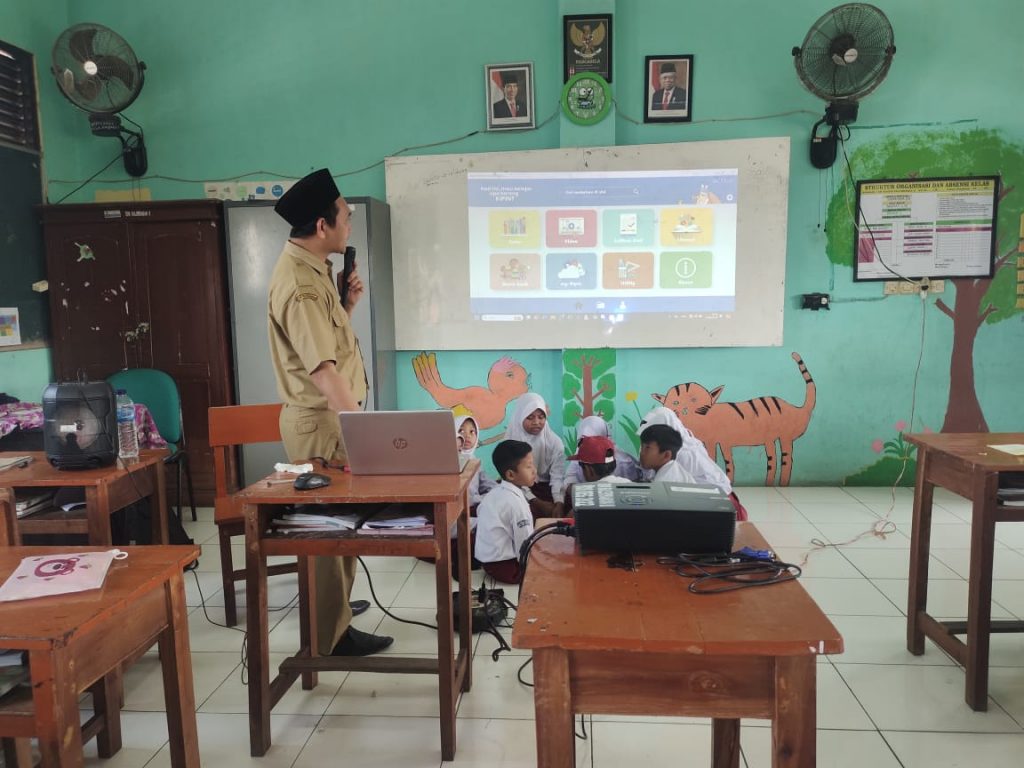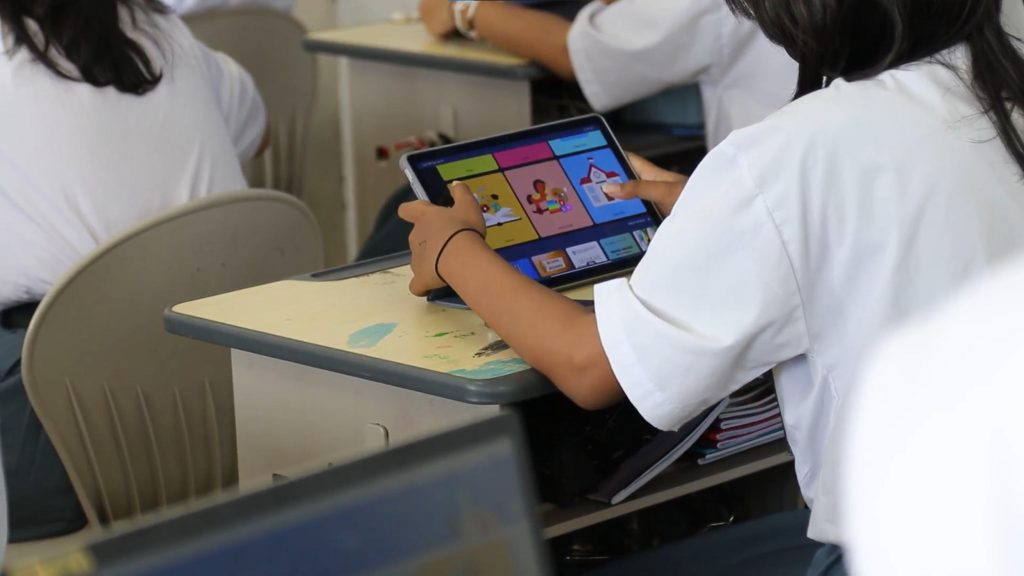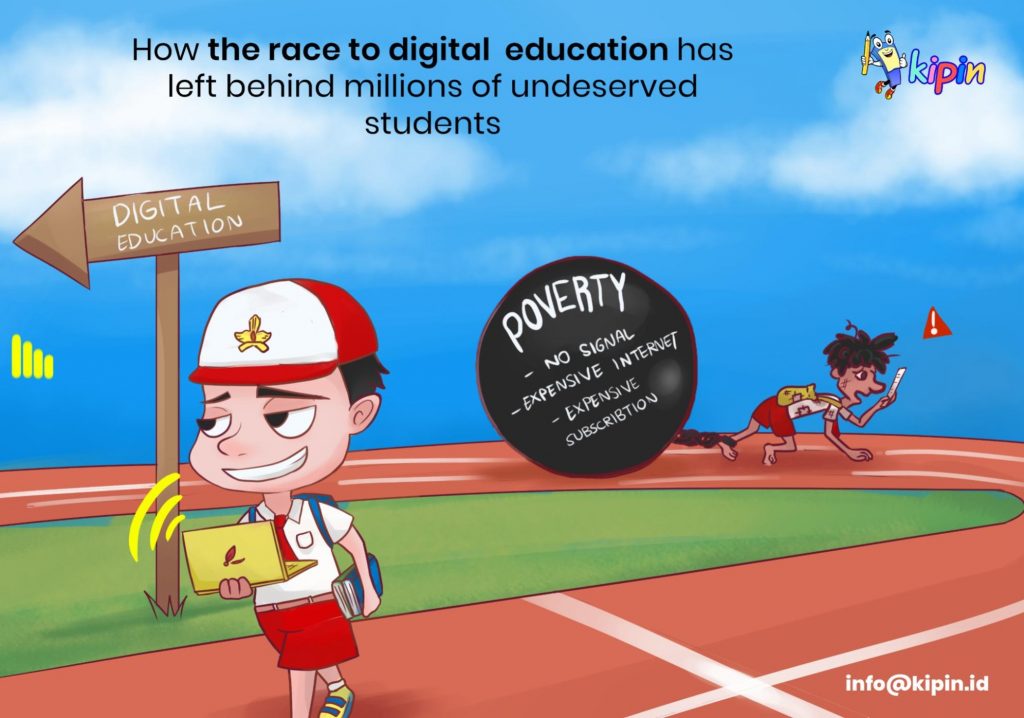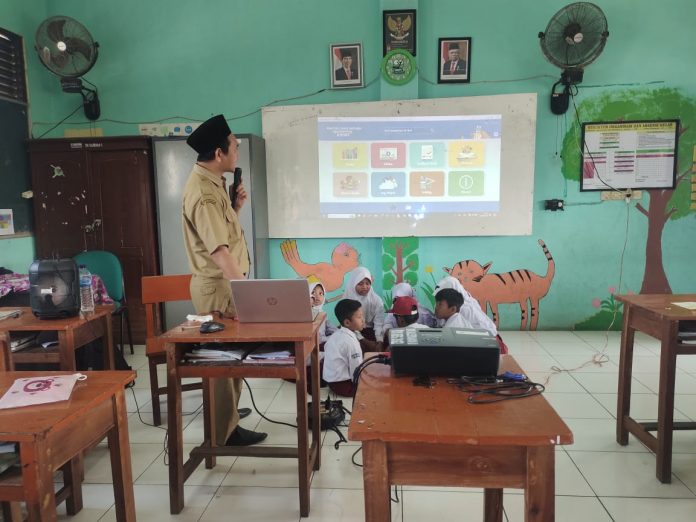
Education is often described as the great equalizer, but in Indonesia, that promise remains elusive for many students in rural areas. The country’s education system is facing three major “broken links” that prevent equal access to quality education: unreliable internet access, limited quality educational resources, and the low purchasing power of rural students. These broken links are not isolated problems; they are interconnected and reinforce each other, creating a cycle of educational inequality.
The Three Broken Links
1. Unreliable Internet Access
Indonesia’s internet infrastructure remains a challenge that can not be solved, especially in rural areas. While urban students can access vast online educational resources, rural students are left behind due to poor connectivity or complete lack of internet access. Without reliable internet, even the best digital tools and content remain out of reach for millions of children.
2. Limited Quality Educational Resources
In addition to poor internet connectivity, the availability of quality educational content is a significant barrier. Even if students manage to access the internet, the resources they find are often fragmented, outdated, or irrelevant. For an edtech company to make an impact, it needs to provide consistent, high-quality content across all subjects and grade levels.
3. Low Purchasing Power
The cost of education-related resources is another broken link. Many rural families struggle with limited income, making it difficult for students to afford textbooks, online learning tools, or subscription-based educational platforms. When an edtech company provides great content but students cannot afford it, it ultimately does no good.
A Single Broken Link Can Derail the Entire System
If just one of these links is broken, the entire system fails. Imagine an edtech company offering world-class content, but rural students cannot access it due to poor internet or lack of funds. The company’s solution, no matter how advanced, is rendered useless. Another example: even if the content is made free, without reliable internet access, students in remote areas still remain disconnected. For a comprehensive solution to work, all the links must be addressed, and everything must connect seamlessly.

The Need for an “All-in-One” Solution
To bridge these gaps, Indonesia needs an “all-in-one” solution that addresses every broken link in the education chain. This solution should overcome internet challenges, provide high-quality content, and be affordable—ideally free—for students from all walks of life. That’s where KIPIN Technology comes in.
“At Kipin, our mission is to ensure that every student, regardless of their geographical or financial limitations, has access to quality education. We believe that education is a fundamental right, not a privilege, and our platform is designed to break the barriers that have kept millions of rural students from reaching their full potential. Kipin is more than just a tool—it’s a movement toward educational equality for all of Indonesia.” said Steffina Yuli, Chief Business Officer, Kipin Technology
Kipin: Connecting the Links
Kipin (Kios Pintar) has emerged as the “All-in-One” solution to solve Indonesia’s educational challenges. Unlike most edtech companies, Kipin can go where others cannot, ensuring that the critical links in the education chain remain intact.
1. No Internet Required
Kipin bypasses the internet connectivity barrier entirely. It operates on an offline server, meaning students can access educational content without needing an internet connection. This makes Kipin the ideal solution for rural areas with limited or no internet access.
2. Massive Content Library
Kipin offers over 60,000 high-quality educational resources, covering all grades from preschool to Grade 12. Students can access textbooks, videos, tryouts, and other interactive materials that are all available offline. Kipin also provides smart books with features that allow students to write, take notes, color, and add multimedia such as picture.
3. Completely Free
Access to Kipin’s content is completely free. There are no costs for books, no need to pay for internet access, and no charges per user. By offering everything at no cost, Kipin removes the financial barrier that keeps many rural students from quality education.

Smart Solutions for Teachers and Students
Kipin doesn’t just stop at delivering content. It also provides smart tools for teachers, such as a digital assessment system for exams, quizzes, and tests. Kipin’s PTO (Paperless Test Offline) platform enables schools to conduct digital exams with automatic grading powered by AI—eliminating the need for paper-based tests.
For students, Kipin offers native apps for Android, iOS, and Windows that allow them to access the platform anytime, anywhere. These tools empower students to take content home, work offline, and stay engaged with interactive learning experiences.
Kipin: The De Facto Standard in Digital Education
Kipin has become the de facto standard for digital platforms in schools across Indonesia. Its 4-in-1 innovation seamlessly integrates:
1. Comprehensive educational content
2. Cutting-edge software
3. Integrated hardware solutions
4. Native mobile applications
This integration creates a self-sufficient, offline learning platform that is accessible in the most remote regions. By solving Indonesia’s broken educational links, Kipin is not just a platform but a movement towards digital equality.
A Massive Impact
The impact Kipin has made in the past five years is nothing short of monumental. Over 140,000,000 e-books have been downloaded from the Kipin platform, free of charge to students and teachers across the country. If each book were priced at just $7, this represents a savings of more than $1 billion to both society and the government—a massive contribution to the nation’s educational infrastructure.
Conclusion: Kipin as the Solution for Indonesia’s Educational Gaps

Indonesia’s educational system can no longer afford broken links. In a world where internet access is unreliable, content is scarce, and rural students are financially disadvantaged, Kipin stands out as the all-in-one solution. With its ability to operate without the internet, deliver quality content for free, and provide essential tools for both students and teachers, Kipin is breaking down the barriers that have long kept rural students from achieving their full potential.
In the journey toward digital education, Kipin is the leading force ensuring that every student—no matter where they live—can access the education they deserve. It’s not just a tool; it’s the key to unlocking the future of education in Indonesia.
More Information:
Email : [email protected]
Chat : http://wa.me/6281233601047
Web : http://kipin.id


